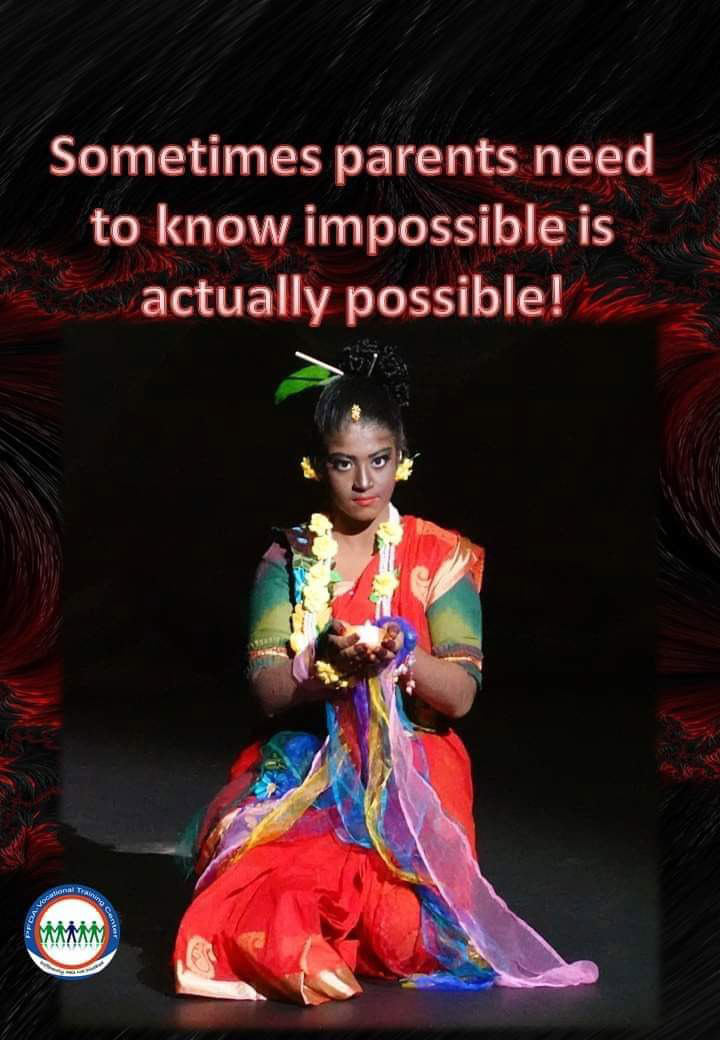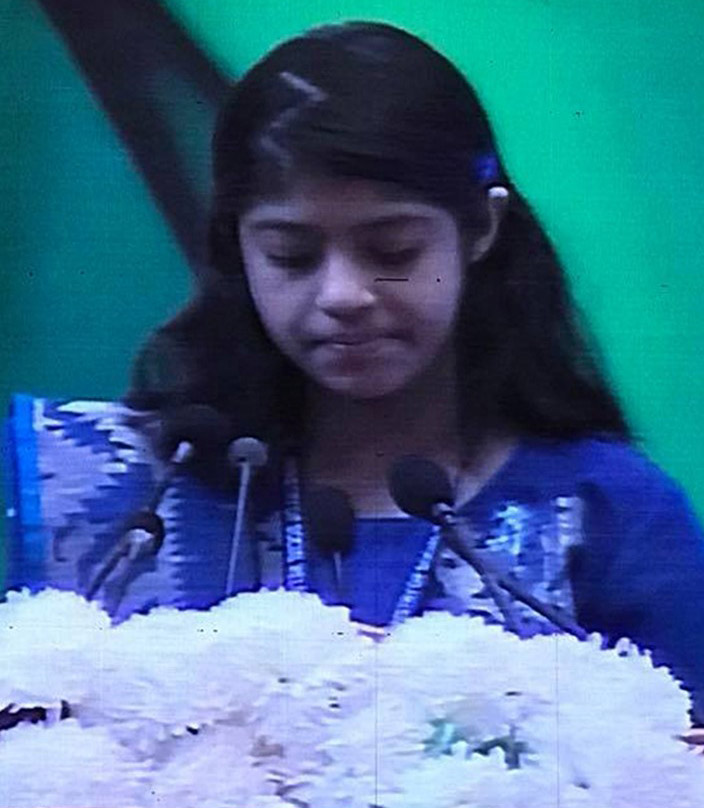Assalamu Alaikum.
Today, April 2, 2018, marks the 11th World Autism Awareness Day. On this significant occasion, I begin by paying tribute to the Father of the Nation, Bangabandhu Sheikh Mujibur Rahman. I also salute all the martyred freedom fighters of 1971, whose sacrifices led to the independence of Bangladesh. We are delighted to have our beloved and esteemed Prime Minister Sheikh Hasina with us at today’s event. Not only in her role as Prime Minister, but also as a compassionate mother, she has been a steadfast supporter, bringing autism out of the shadows and into the light. We are deeply grateful to her for her support and dedication.
I also extend my thanks and gratitude to his wonderful daughter, Saima Hussain, who served as our Path Demonstrator. Greetings to our special guests, teachers, parents, and friends who have joined us for today’s event.
My name is Isaba Hafiz Sushmi, and I have autism. I am honored to have the chance to speak with the Honorable Prime Minister of Bangladesh about autism for the first time. I am 16 years old and currently pursuing my studies along with technical training at the PFDA Vocational Training Center.
The teacher explained that my autism was not my fault or my parents’ fault. However, when I was a child, I couldn’t attend school like my sister. I had a strong desire to learn and write, but the schools wouldn’t accept me. They said there were no provisions for students like me in mainstream schools. I am currently studying Class 10 books, but I couldn’t take the Primary School Certificate (PSC) or Junior School Certificate (JSC) exams in Bengali medium, nor could I take the O-level exams in English medium. Therefore, I am unsure whether I will be able to take the SSC exam after completing Class Ten. For individuals like myself who aspire to pursue education, there should be opportunities for higher studies in academic subjects. Considering these unique challenges, it is crucial to develop a curriculum tailored for special education. Our school syllabus should establish minimum standards that accommodate these needs.
In addition to regular schooling, PFDA Vocational Training Center offers a variety of on-the-job training opportunities. I enrolled here and honed my skills in my favorite activities such as painting, dancing, singing, and various stage performances. In 2017, I received another achievement after learning about filmmaking here. Honorable Prime Minister, my drawing is featured on this Eid-ul-Fitr greeting card.
In 2017, I had the chance to attend the Autistic Talent Gala in Hong Kong, but my father decided against it, concerned for my safety. Nevertheless, a group of 16 individuals, including Mehzabeen and Miki, attended and won awards. I felt a sense of disappointment. I’m sharing this experience here because there’s a misconception that individuals with autism don’t understand or feel emotions. Many of us, like myself, struggle to communicate using conventional words. Often, we struggle to articulate our problems or express our needs. It may seem like our emotions, needs, and feelings are not important to our parents. Many people assume that “we don’t understand.” Even though we may not communicate clearly, we do understand, and we experience both sadness and happiness. We have emotions too. I urge everyone to see us as fellow human beings and treat us with respect as individuals. Despite our differences in nature, we possess talents, creative abilities, dreams of success, and the right to live beautifully.
Today, our focus is on empowering women and girls with autism! One of the challenges we face is related to social security. Without adequate support, many of us struggle to go out and navigate public spaces safely. By implementing BRTC bus services on various routes specifically catering to people like us, our ability to travel and stay safe will greatly improve.
Reverend Saima Wazed has been instrumental in raising awareness about autism. Thanks to her efforts, our parents are becoming more hopeful and supportive of us, helping to improve not only our personal lives but also our social interactions. We are grateful to her for her dedication and love.
Several of my friends have secured employment in various places after receiving training from the vocational training center. Currently, 63 individuals are employed in baking and service roles, with 21 others who are unable to work outside being facilitated to work from home. This demonstrates that with proper training, we are capable of working effectively. If employers recognize our work style and understand that our contributions are beneficial to their businesses, we can become self-reliant.
Only then can we live with our self-respect intact. We have emphasized time and again that we are differently abled. We don’t seek pity; rather, we aspire for the basic rights as human beings and the opportunity to integrate into mainstream society, where our abilities can be recognized and utilized without prejudice. We envision a society that is accommodating and inclusive of special needs, allowing us to thrive and live harmoniously.
We envision a self-reliant and inclusive world where families and governments stand beside us not out of pity, but with genuine respect. Just as the Hon’ble Prime Minister and her compassionate daughter have supported us, I hope we continue to receive such warmth and care in the future. I also appeal to society at large to offer their support and understanding. With this, I conclude my speech today.
Thank you all.
